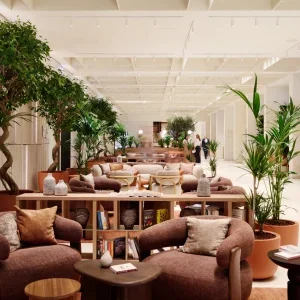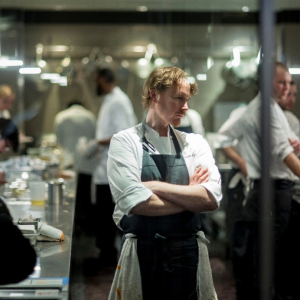The hospitality industry is no stranger to disruption. It has witnessed extensive transformation and overcome significant challenges, not least global financial crises, the advent of new technologies, the proliferation of online travel agencies, and constantly adapting to new generations of guests and their rapidly changing requirements around living, working and socialising.
But, as with other industries, these fluctuations pale in comparison to the huge disruption caused by Covid-19 and its proclivity to drastically reshape the world as we know it.
According to the International Monetary Fund (IMF) the global economy will shrink by 3% this year, with world trade expected to plunge by 11%. For some forecasters, this is symptomatic of an economic depression unseen since the 1930s.
The travel and tourism sector will need to adapt to this economic and social upheaval, and act quickly and decisively. How best to do this, and the potential long-term ramifications these changes could have was the central topic of a Business Review webinar in May, aptly named: ‘Facing the Challenge of a Rapidly Changing World’.
Chaired by event producer Garrod Dixon, the meeting focused on what changes could be expected going forward for both larger hotel chains and smaller independents, before exploring the best practices industry players could adopt to prepare for these eventualities.
In his opening remarks, Carl Weldon, CEO for HFTP in Europe, posed the initial question: “What is a hotel today?”, before asking what it needs to be in order to survive in the future.
Paul Nisbett, finance director at Valor Hospitality Partners, began by talking about the increasingly blurred boundaries between hotels and hotel brands, before outlining how technology will change the sector as hoteliers and hospitality companies respond to concerns around Covid-19.
“I think that technology will lead more than some other services will, certainly in the foreseeable future, as people become more nervous about personal interaction over a period of a few years,” Nisbett said.
Bryan Hammer, vice president of IT at Belmond, began by reaffirming the essentials of the hotel concept. “If we look at a hotel today, structurally, philosophically, culturally… what’s actually changed? Nothing. It’s still heads and beds, it’s still about delivering great customer service. The buildings are largely the same, and so are the reasons that people want to stay in them.”
Amidst the downturn, Hammer insisted that hotels will still be necessary, whether for holiday travel or business trips, but those managing and operating them will need to be more adaptable, which could be positive in the long run.
Greater flexibility with operating procedures, a receptivity to new regulations around distancing and hygiene, more in-room dining and health-related marketing campaigns are likely to become more common over the coming months, potentially years, Hammer argued.
“Flexibility is going to become stable,” Hammer said, referring to a recent WHO report that mentions the possibility of the virus becoming a permanent aspect of our daily lives if a vaccine is not developed.
“The changes that we’re making now are going to be with us in the months and years to come,” he continued, before concluding that this should be seen as an exciting time for innovation. “We can start to get more creative, and we should take of advantage of that while we can,” he said.
Leading on from this, Juan Aguirre, director of hospitality and MDU solutions at CommScope, argued that now might be the time for hotels to wrestle back some of the control afforded to online travel agencies. “The brands today have all been trying to fight off the OTAs and gain direct bookings and today’s changes might be their chance to get revenge,” Aguirre said.
Naturally, the ease with which certain hotel operators can make wholesale changes on a technological level depends on the size and model of the brand, something that Aguirre argued could be harder for more standardised offerings.
“Some of these guys have very stringent brand standards,” Aguirre said, “and you look at that and [it becomes obvious] that is going to take away some of their flexibility going forward.”
On the other hand, Aguirre argued, those hotel brands that had been scrupulous with their standards would be better suited to adapt in the current landscape. “My feeling is that the bigger brands that have imposed tighter standards are probably going to come out strengthened by all of this because they’ve got the core foundations from which to build their offerings going forward,” he said.
Dale Nix, consulting director for Avenue9, argued that because larger brands have more specific operational and reputational requirements they tend to be more restrictive and less suited to change.
Referring to his own experiences working with Hilton, Marriot and IHG, Nisbett said that, while traditionally innovation has been hard to achieve these environments, it is now highly likely that these well-known brands will have little choice but to change, implementing contactless systems and self-service concierges across the board.
“There’s no doubt they have the funds to develop things,” Nisbett said, “the challenge is that they’ve got to deploy [this technology] into so many different hotels and it takes a lot longer for them to be able to achieve things.”
The discussion soon moved on to the main hurdles and barriers that might prevent hotels and hospitality companies from creating flexible, durable business and operational strategies going forward.
In reponse to Nisbett, Hammer argued that brand size itself was a substantial barrier to flexibility. “In a situation like this, the bigger you are, the more vulnerable you are,” Hammer said. “You have to turn a very big ship, and that’s got to be done slowly”.
On the other hand, if big brands can react quickly they already have the tools in place to roll out new processes and procedures in response to this large-scale disruption. “They’re going to be more sophisticated and secure when it comes to change management because they’ve been doing it for a long time” Hammer said.
These changes might include allotting more floor space than usual during low season, turning large conference rooms into extended dining facilities for socially distanced meals, or extending rethinking floorplans to make sure guest rooms are more spaced out. Finally, Hammer stressed that it is important for hotels to recognise the kind of changes they are making, separating short term tactical moves from long-term strategic goals.
For Nix, perhaps the biggest barrier to innovation is hotel infrastructure, not least outdated networks, cabling and inefficient internet access – particularly in older buildings – that invariably hampers technological optimisation. He also acknowledged a lack of sophisticated technology suppliers when it came to hotel-specific solutions, something that he said would invariably prevent more innovation across the board.
Leading on from this, Aguirre highlighted the lack of investment in technology in hotels and hospitality ventures more generally. “Ultimately, there’s a lack of investment in this industry because stakeholders are not aligned,” Aguirre said. If this problem is not overcome, he warned, hotels will have to continue to put up with outdated in-house legacy systems and OTAs will continue “owning the guest”.
The final part of the discussion focused on what the future might hold for the broader hotel industry, in particular how new technologies could redefine traditional elements of the hotel experience such as the concierge model, helping to alleviate human interaction as the focus shifts towards social distancing and health and hygiene.
Nisbett remained positive, comparing the current crisis to the fallout from major events such as 9/11 and the 2008 financial crisis, arguing that during those periods lots of hotel brands were good at quickly recognising changes in consumer spending habits, altering their long-term commercial strategies and goals accordingly. In this current crisis, those measures, he argued, will invariably revolve around using new technologies to overcome social distancing measures. “The standards will move and so will productivity and the best way to increase productivity is through technology,” Nisbett concluded.
“Personal touch is not about touching,” Aguirre responded, arguing that while the current lnew technology interfaces should be used to reduce human contact, this shouldn’t mean a more impersonal form of service. “Whatever [technology] is developed there is still going to a human element to it,” he said.
Nix finished by stressing how important house-keeping staff would be in dealing with health and hygiene concerns, arguing that these roles would require staff to be more tech savvy, particularly if contactless technologies are used to help maintain strict standards around safety and hygiene. “There’s going to be a fair bit of trial and error with it, and we’re going to be in a learning cycle for a substantial period of time,” he concluded.






